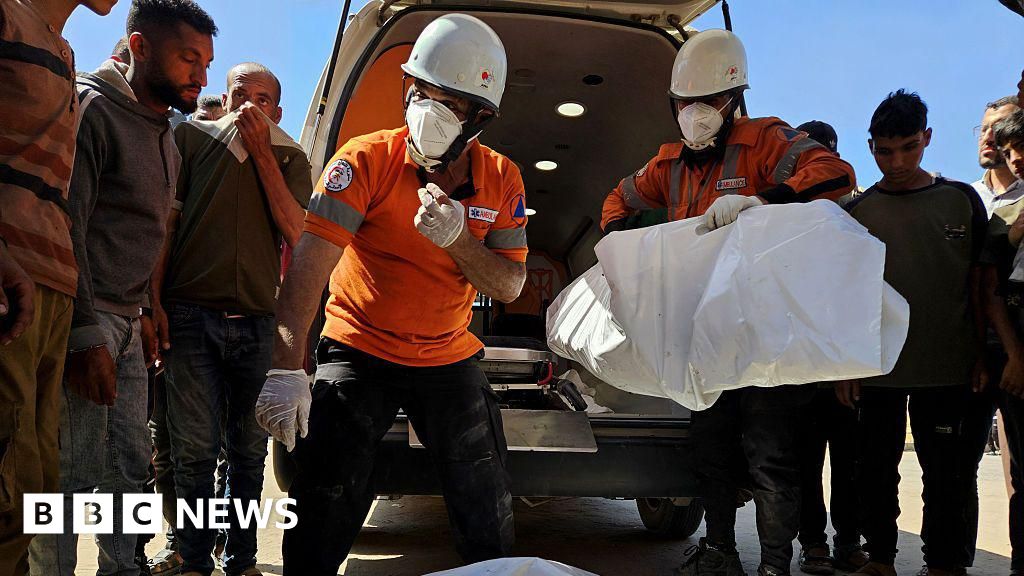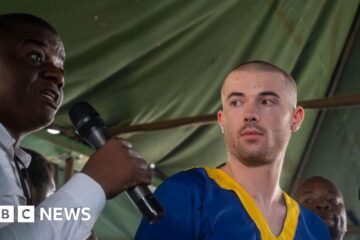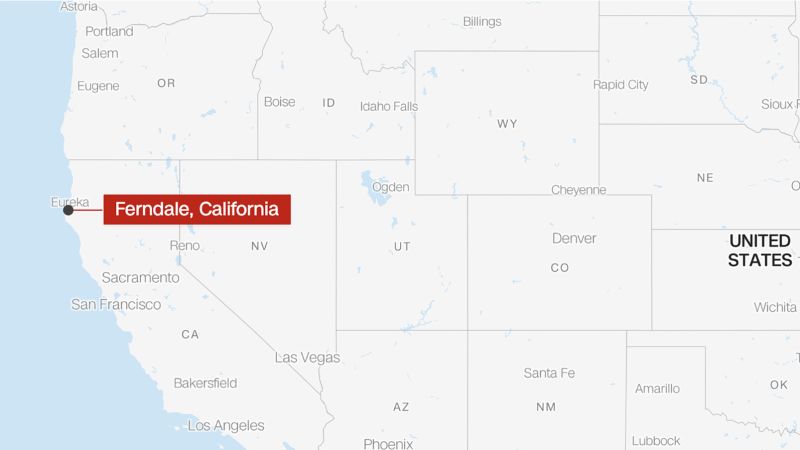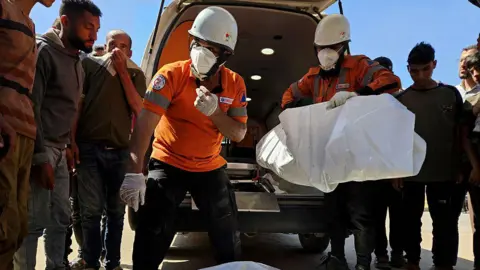 Getty Images
Getty ImagesAn Israeli air strike on Gaza hit the home of a doctor and killed nine of her 10 children, the hospital where she works in the city of Khan Younis says.
Nasser hospital said one of Dr Alaa al-Najjar’s children and her husband were injured, but survived.
Graeme Groom, a British surgeon working in the hospital who operated on her surviving 11-year-old boy, told the BBC it was “unbearably cruel” that his mother, who spent years caring for children as a paediatrician, could lose almost all her own in a single missile strike.
Israel’s military said its aircraft had struck “a number of suspects” in Khan Younis on Friday, and “the claim regarding harm to uninvolved civilians is under review”.
A video shared by the director of the Hamas-run health ministry and verified by the BBC showed small burned bodies lifted from the rubble of a strike in Khan Younis.
The Israel Defense Forces (IDF) said its “aircraft struck a number of suspects who were identified operating from a structure adjacent to IDF troops in the area of Khan Younis”.
“The Khan Younis area is a dangerous war zone. Before beginning operations there, the IDF evacuated civilians from this area for their own safety,” the Israeli military said.
In a general statement on Saturday, the IDF said it had struck more than 100 targets across Gaza over the past day.
The health ministry said at least 74 people had been killed by the Israeli military over the 24 hour-period leading up to about midday on Saturday.
Dr Muneer Alboursh, director of the health ministry, said on X that the al-Najjars’ family house was hit minutes after Dr al-Najjar’s husband Hamdi had returned home after driving his wife to work.
Dr Alboursh said the eldest of Dr al-Najjar’s children was aged 12.
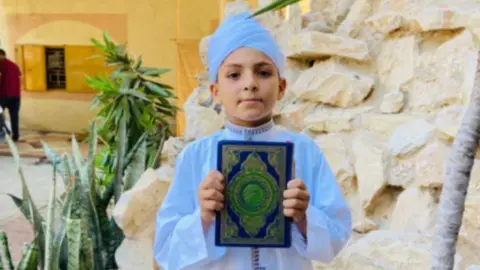 Al-Najjar family
Al-Najjar familyMr Groom said the children’s father was “very badly injured”, in a video posted on the Instagram account of another British surgeon working at Nasser hospital, Victoria Rose.
He told the BBC that the father had a “penetrating injury to his head”.
He said he had asked about the father, also a doctor at the hospital, and had been told he had “no political and no military connections and doesn’t seem to be prominent on social media”.
He described it as an “unimaginable” situation for Dr Alaa al-Najjar.
Mr Groom said the surviving 11-year-old boy, Adam, was “quite small” for his age.
“His left arm was just about hanging off, he was covered in fragment injuries and he had several substantial lacerations,” he told the BBC.
“Since both his parents are doctors, he seemed to be among the privileged group within Gaza, but as we lifted him onto the operating table, he felt much younger than 11.”
“Our little boy could survive, but we don’t know about his father,” he added.
Mahmoud Basal, spokesman for Gaza’s Hamas-run Civil Defence agency, said on Telegram on Friday afternoon that his teams had recovered eight bodies and several injured from the al-Najjar house near a petrol station in Khan Younis.
The hospital initially posted on Facebook that eight children had been killed, then two hours later updated that number to nine.
Another doctor, Youssef Abu al-Rish, said in a statement posted by the health ministry that he had arrived to the operating room to find Dr al-Najjar waiting for information about her surviving son and tried to console her.
In an interview recorded by AFP news agency, relative Youssef al-Najjar said: “Enough! Have mercy on us! We plead to all countries, the international community, the people, Hamas, and all factions to have mercy on us.
“We are exhausted from the displacement and the hunger, enough!”
On Friday, UN Secretary-General António Guterres warned that people in Gaza were enduring what may be “the cruellest phase” of the war, and denounced Israel’s blockade on humanitarian aid imposed in March.
Israel partially lifted the blockade earlier this week. Israeli military body Cogat said 83 more trucks carrying flour, food, medical equipment pharmaceutical drugs entered Gaza on Friday.
The UN has repeatedly said the amount of aid entering is nowhere near enough for the territory’s 2.1 million people – saying between 500 to 600 trucks a day are needed – and has called for Israel to allow in much more.
The limited amount of food that trickled into Gaza this week sparked chaotic scenes, with armed looters attacking an aid convoy and Palestinians crowding outside bakeries in a desperate attempt to obtain bread.
A UN-backed assessment this month said Gaza’s population was at “critical risk” of famine.
People in Gaza have told the BBC they have no food, and malnourished mothers are unable to breastfeed babies.
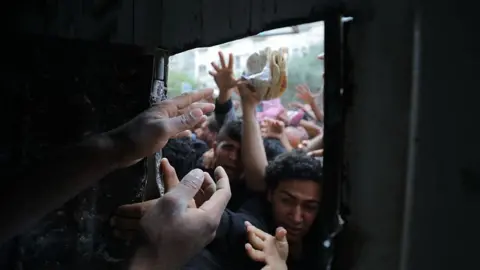 Getty Images
Getty ImagesChronic shortages of water are also worsening as desalination and hygiene plants are running out of fuel, and Israel’s expanding military offensive causes new waves of displacement.
Israel has said the blockade was intended to put pressure on Hamas to release the hostages still held in Gaza.
Israel has accused Hamas of stealing supplies, which the group has denied.
Israel launched a military campaign in Gaza in response to Hamas’s cross-border attack on 7 October 2023, in which about 1,200 people were killed and 251 others were taken hostage.
At least 53,901 people, including at least 16,500 children, have been killed in Gaza since then, according to the territory’s health ministry.
Additional reporting by David Gritten and Jaroslav Lukiv
Note:- (Not all news on the site expresses the point of view of the site, but we transmit this news automatically and translate it through programmatic technology on the site and not from a human editor. The content is auto-generated from a syndicated feed.))
